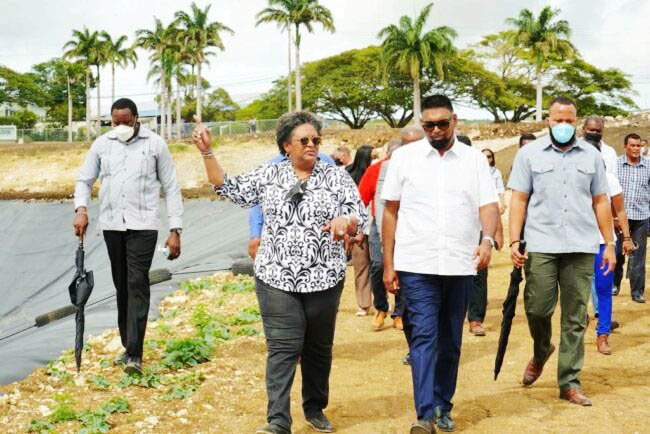Up to this time it appears to be the case that Caribbean Community (CARICOM) member countries are making ‘heavy weather’ of trying to navigate their way out of the choppy waters’ of food insecurity communicated to the region by the World Bank/ Food and Agricultural Organisation (FAO) as far back as 2021 and at least twice thereafter, the two latter warnings coming over the past two years. There are those who would argue, with considerable justification, that faced with a condition of acute food security, most of the member countries of CARICOM are likely to (as we in Guyana say) come up short were they to be required, on their own, to come up with workable solutions. The fact of the matter is that the smaller Caribbean territories, partially on account of their perpetual climate vulnerabilities, are always likely to have to import much if not most of their food. Those imports would also have to take account of their tourist arrivals.
That said, historically, the region as a whole has never, until relatively recent, appeared to consider food security to be anything resembling a serious threat to its existence. Trinidad and Tobago and Jamaica are known to have always been able to hold their own in terms of their agricultural pursuits. Where Guyana is concerned, the fact of the matter is that we have not, historically, been referred to as the food basket of the region for nothing. Over time, the context of the food security discourse has shifted. The two phenomenon that have been principally responsible for this have been, first, rising food import prices (which have affected those countries that are heavily dependent on imports) and secondly, changing weather patterns that offer up more demanding climate conditions in which to pursue agriculture. Here it should be pointed out that changing weather patterns are non-discriminatory so that there are ‘seasons’ during which even the usually fairly ‘food secure’ countries of the region are ‘in trouble,’ to varying degrees, where food sufficiency is concerned.
Intermittent or seasonal rains come and go, creating peaks and troughs in the food production process in the region. The problem, in relatively recent years, is that we have been unable to predict the changing weather patterns. These have become what can be described as ‘an unknown quantity’ so that the respective ‘seasons’ of plenty and scarcity have diminished in their predictability. Up until just over a year ago, issues of food scarcity were hardly debating issues in the region. Between intra-regional trade and extra-regional imports we have always ‘made out.’ High food prices, however, coupled with an expanded demand for food in other less well-appointed regions of the world, have been largely responsible for what we are now being told is the condition of food insecurity in the Caribbean.
Whether we believe it or not, we now find ourselves ‘scrambling’ to put measures in place to push back ‘food insecurity’ in the Caribbean. The past two reputable reports on regional food security tendered by the FAO, suggest that the region continues to slip in terms of its food security bona fides. Beyond the ongoing effort to create a regional Food Security Terminal through an initiative being led largely by Guyana and Barbados there is no other significant potential ‘game changer’ that is on the cards. If we continue to ‘talk up’ the so-called 25×2025 foreign foods import cut (and notwithstanding the distinct note of optimism that is being sounded about the initiative, we must keep open minds on the issue of slippage, as is usually the case with critical undertakings in the region,
What makes the food security challenge a serious one for the Caribbean is that the circumstance of climate change and its impact on weather patterns point to an incremental challenge for food supplies that are dependent on conventional agricultural pursuits. Given the scale of the adjustment that will have to be made in order to create an enhanced enabling enhancement for increased food production, considerable investments will have to be made in various forms of enabling technology. Whether these will be affordable for us and whether food that is produced at higher costs will be universally affordable across the entire region is by no means clear. Once the food security challenge grows more formidable, we – the member countries of CARICOM, that is – are going to have to devise strategies to fend off the worst effects of elements like ongoing climate change. Contextually, it is not simply a matter of planning ahead. Food security for the region may well become a matter of constantly ‘chopping and changing’ to take account of considerations that are almost certain to change continually, over time, rather than remain static.




